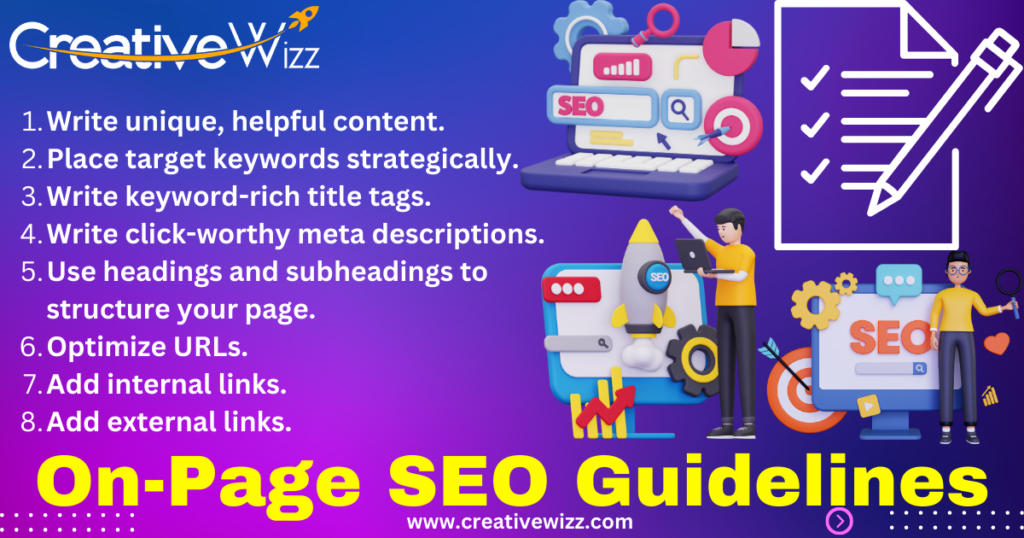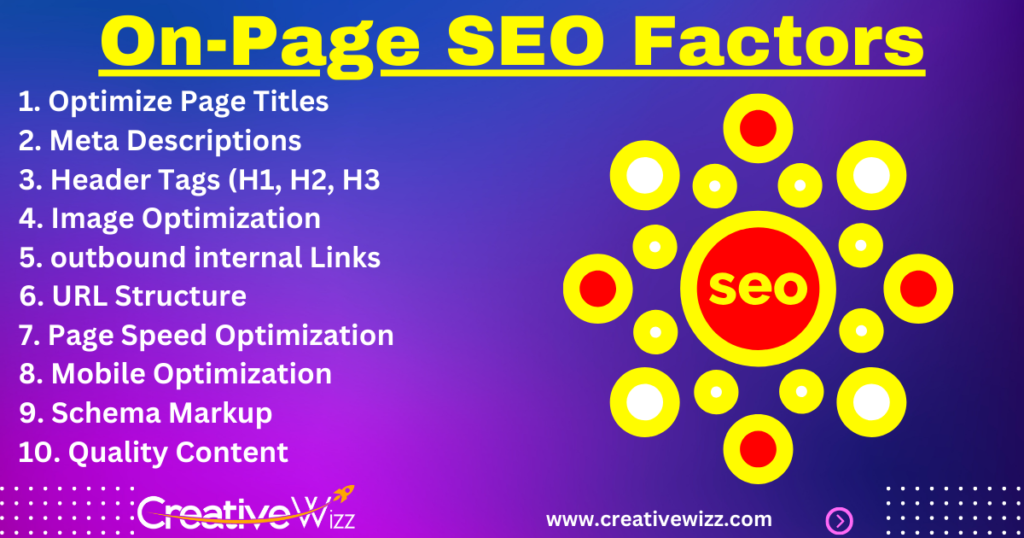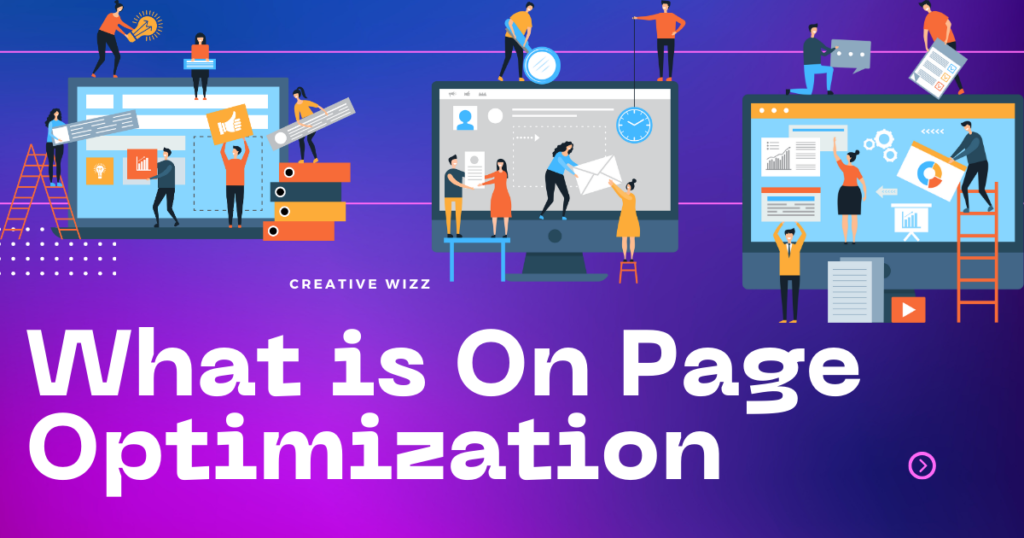Search engine optimization (SEO) is crucial for driving relevant organic search traffic to your website. While SEO has many facets, technical SEO is the foundation for your success.
In this comprehensive guide, we’ll explain technical SEO, why it’s essential, give tips for optimizing your site technically, and discuss critical technical SEO best practices. By following technical SEO principles, you can eliminate issues that hamper your site’s visibility and performance in search engines like Google.
What is Technical SEO?
Technical SEO refers to the underlying technical health and optimization of a website. It involves all the behind-the-scenes work that enables your site to function well and deliver the best possible user experience.
Technical SEO focuses on site architecture, speed, mobile optimization, security, server infrastructure, and coding. It ensures your site can be adequately crawled, indexed, and ranked by search engines.
While other areas of SEO, like keywords and content, are certainly important, technical SEO comes first. Without the proper technical foundations, your site will fail to reach its SEO potential,; even the best content won’t compensate for that.
Think of Technical SEO as the bedrock upon which your website’s online visibility rests. It encompasses all the optimization efforts that guarantee smooth access and comprehension for search engines like Google. These efforts ensure your website’s technical health, allowing search engine crawlers to navigate your virtual castle easily and unlocking its content for the world to see.
Why is Technical SEO Important?
Solid technical SEO provides the basis for your website to perform well in organic search across a variety of factors:
✔️ Indexing: Technical flaws can prevent search engine crawlers from fully accessing and indexing your important pages. This directly reduces potential traffic.
✔️ Page speed: Faster page load times enhance user experience. Google incorporates page speed as a ranking factor.
✔️ Mobile optimization: Over half of all Google searches now happen on mobile devices. You need a seamless mobile experience.
✔️ Security: Google wants to promote secure, malware-free sites. Technical vulnerabilities can lead to blocklisting.
✔️ Site uptime: Server downtime or errors mean users encounter failures accessing your site. Proper technical optimization minimizes downtime.
In summary, technical solid SEO allows your website to reach its full potential for search visibility, conversion rate optimization, and, ultimately, revenue growth. It should be the number one priority before focusing on other SEO tactics.
Why Should You Optimize Your Site Technically?
Here are five of the key benefits you gain from technical SEO optimization:
1. Reach your complete SEO visibility
By eliminating technical obstacles, your important pages have the best chance of being crawled, indexed and ranked in search engines.
2. Enhance user experience
Faster loading pages, seamless mobile experience, and minimal errors keep visitors happy.
3. Unlock more advanced SEO tactics
Specific SEO strategies like entity-based optimization require a technically sound site first.
4. Build security and trust
Search engines and users prefer websites that offer a secure experience free of malware risks.
5. Future-proof your site
Regular technical optimization ensures your site stays updated with the latest best practices and is ready for the future.
Optimizing technically provides a strong SEO foundation now while future-proofing your website as search engines evolve. It should be the first step before layering on other optimization tactics.
Characteristics of a Technically Optimized Website
When done right, technical SEO transforms your website into a technically sound environment ready to perform its best across several areas:
✅ Fast page speed – Pages load quickly thanks to code optimization, efficient hosting, compression, caching, and more.
✅ Mobile optimized – A responsive design provides an excellent experience for all mobile device sizes with fast load times.
✅ Secure – The site uses HTTPS across all pages and implements the latest security best practices.
✅ Accessible – Content is accessible to users with disabilities through proper semantics, colour contrast, ARIA attributes, and more.
✅ Optimized Core Web Vitals – Key user experience metrics like LCP, FID, and CLS meet or exceed suggested thresholds.
✅ Minimal downtime – Proper infrastructure, load balancing, caching, and testing ensure maximum uptime.
✅ Easy to crawl – Clean technical foundations allow search engine bots to crawl quickly and index content.
✅ Valid code – HTML, CSS, and JavaScript code passes validation without errors that could cause problems.
A technically optimized site provides the best possible crawling, indexing, speed, security and user experience. That leads t,o reaching the site’s full potential for organic search visibility and conversion.
Demystifying the Foundation: A Comprehensive Guide to Technical SEO
Imagine your website as a majestic castle brimming with valuable content. But what if a hidden moat and locked gates prevent potential visitors from discovering its treasures? That’s where Technical SEO comes in, acting as the invisible bridge, ensuring search engines effortlessly crawl, understand, and index your web pages, ultimately propelling them higher in search results.
Delving Deeper: What Does a Technical SEO Audit Entail?
A comprehensive Technical SEO audit, like those offered by Creative Wizz, meticulously examines your website’s health and performance from a search engine’s perspective. Key areas typically assessed include:
- Crawlability: Can search engines access and navigate your website efficiently?
- Indexability: Are your essential pages being included in search engine databases?
- Mobile-friendliness: Does your website provide an optimal experience across various devices?
- Structured data: Are you leveraging markup to convey rich information about your content?
- Content quality: Does your website offer valuable, relevant, and well-structured content?
- Performance: Does your website load quickly and provide a smooth user experience?
Understanding the “Why” Behind Technical SEO: Unlocking Growth Potential
Why should you optimize your site technically? The answer is simple: visibility and success. By prioritizing Technical SEO, you:
- Boost organic traffic: Improved crawlability and indexation lead to more pages appearing in search results, attracting more organic visitors.
- Enhance user experience: Faster loading times, mobile-friendliness, and straightforward navigation contribute to a positive user experience, boosting engagement and conversions.
- Strengthen brand reputation: A technically sound website fosters trust and reinforces your brand’s professionalism.
- Outperform competitors: Outrank competitors by ensuring your website meets the latest search engine standards and user expectations.
What Makes a Technically Optimized Website Shine?
Several vital characteristics define a technically sound website:
- Seamless Crawlability: Search engines can effortlessly access and navigate all your web pages.
- Flawless Indexability: Essential pages are readily included in search engine databases.
- Mobile-First Design: Delivers an exceptional experience across all devices, especially smartphones.
- Structured Data Implementation: Rich information about your content enhances search engine understanding and presentation.
- High-Quality Content: Valuable, relevant, and engaging content attracts users and search engines alike.
- Optimized Performance: Fast loading times and a smooth user experience keep visitors engaged.
Types of Technical SEO
Technical SEO can be divided into two primary categories:
- On-site technical SEO
On-site technical SEO covers optimization directly implemented on a website, including:
- Code (HTML, CSS, JS) optimization
- Page speed optimizations
- Mobile responsiveness
- URL structure
- Duplicate content consolidation
- Accessibility improvements
- Security enhancements
This includes any technical optimization done directly to files and code within your website environment.
Technical SEO encompasses various areas, each requiring specific strategies:
- On-page SEO: Optimizing individual pages for search engines with relevant keywords, meta descriptions, and title tags.
- Off-page SEO: Building backlinks from reputable websites to signal authority and trust.
- Mobile SEO: Ensuring your website delivers a seamless experience on all devices.
- Local SEO: Optimize your website for local searches if you have a brick-and-mortar presence.
- Structured Data: Implementing schema markup to provide rich information about your content, enhancing its presentation in search results.
- Off-site technical SEO
Off-site technical SEO refers to technical optimizations implemented externally, including:
- Web hosting selection
- Content delivery network (CDN) setup
- DNS configuration
- Indexing API integrations
- Link-building campaign tracking
- Search engine crawl budget monitoring
Off-site technical SEO enhances your website’s technical capabilities through external services and infrastructure.
While on-site optimization handles the website, off-site technical SEO improves technical capabilities by leveraging external technologies and platforms. A comprehensive technical SEO approach utilizes both on-site and off-site optimization.
Technical SEO Audit
Before technically optimizing your website, conducting a technical SEO audit is crucial. This review identifies issues impacting site health, performance, and search visibility.
An audit inspects all critical technical parameters, including:
- Indexing: Evaluate if search engines can properly crawl and index pages. Identifies any blocking factors.
- Page speed: Measures mobile and desktop page load times from multiple locations. Check page weight and opportunities to enhance performance.
- Mobile friendliness: Validates responsiveness across devices and analyzes mobile speed.
- Security: Checks for vulnerabilities, proper TLS implementation, and best practices.
- Site architecture: Assesses URL structure, internal linking, and duplicate content issues.
- Accessibility: Audits compliance with recommended accessibility standards and practices.
- Core Web Vitals: Reviews accurate visitor metrics for LCP, FID, and CLS.
Conducting technical SEO audits at least quarterly lets you catch any issues before they escalate and negatively impact organic performance. If you need professional help, our technical SEO consultants at Creative Wizz offer full technical site audits.
10 Technical SEO Best Practices
Here are ten key technical SEO best practices to optimize your site:
1. Structure URLs semantically – Use logical, organized URL structures following common patterns and categories. Format: example.com/category/sub-category/page.html
2. Implement proper redirects – Install 301 permanent redirects to forward outdated pages and consolidate duplicate content issues. Temporary 302 redirects are also helpful at times.
3. Optimize page speed – Page speed impacts user experience and SEO. Minify resources, compress images and cache assets and leverage other optimizations to improve speed.
4. Make pages mobile-friendly – With growing mobile usage, a mobile-optimized responsive site is a must. Audit mobile load speeds and user experience.
5. Secure site with HTTPS – Upgrade to full HTTPS coverage and follow additional web security best practices like implementing security headers.
6. Improve site architecture – Proper internal linking, siloed content organization, and XML sitemaps ensure crawlability.
7. Check indexing with Google Search Console – Confirm Google can correctly index your new pages. Identify and fix any crawling or indexing errors.
8. Analyze Core Web Vitals – Review accurate visitor metrics for LCP, FID, and CLS to understand user experience opportunities.
9. Perform accessibility testing – Validate experience using accessibility checkers and screen readers.
10. Upgrade to the latest CMS – Using an outdated CMS or plugins introduces security risks. Stay updated.
11. Implement caching – Caching reduces server strain and speeds up sites by minimizing database lookups. Use CDN caching, too.
12. Monitor site performance – Use uptime monitoring and performance analytics to stay on-site health.
13. Conduct technical SEO audits – Regularly audit and optimize technical SEO to maintain site health as it evolves.
14. Test significant site changes – Check for any technical issues introduced when launching a new site design, infrastructure change, or migration.
Technical SEO Checklist
To summarize technical optimization in checklist form, be sure to audit and optimize:
🔎 URL structure and internal linking
🔎 Duplicate content through redirects
🔎 Page speed with optimizations
🔎 Mobile responsiveness and speed
🔎 Security protocols like HTTPS
🔎 Proper indexing and XML sitemaps
🔎 Core Web Vitals metrics
🔎 Accessibility and valid markup
🔎 Server infrastructure performance
🔎 Caching implementation
🔎 Latest CMS and software versions
Following technical SEO best practices in these critical areas will maximize your site’s crawlability, security, speed, uptime and user experience. That forms the basis for SEO success.
A Roadmap to Success: 10 Best Practices for Technical SEO:
- Conduct a thorough technical SEO audit. Understand your strengths and weaknesses.
- Ensure a transparent robots.txt file. Guide search engines on which pages to crawl and index.
- Submit a well-structured XML sitemap. Help search engines discover all your essential pages.
- Prioritize mobile-friendliness. Deliver a flawless experience on smartphones and tablets.
- Optimize page speed. Fast loading times are crucial for user engagement and search ranking.
- Address broken links. Fix them to maintain website quality and avoid user frustration.
- Craft compelling titles and meta descriptions. Entice users and inform search engines.
- Implement structured data markup. Enhance your content’s understanding and presentation.
- Monitor and analyze performance regularly. Track progress and identify areas for improvement.
- Seek professional help when needed. Leverage expert guidance for complex aspects.
Partnering with Creative Wizz for Your Technical SEO Journey:
At Creative Wizz, we understand the complexities of Technical SEO and its impact on your website’s success. Our team of experts is equipped to:
- Perform comprehensive technical SEO audits tailored to your website and industry.
1. Deep Dives into Each Technical SEO Type:
- On-page SEO: Keyword research and integration strategies
- Title tag and meta description optimization best practices
- Internal linking structures for improved navigation and SEO value
- Image optimization techniques for user experience and search engine understanding
- Off-page SEO: Link-building
- strategies like guest blogging, broken link building, and directory submissions
- Building relationships with relevant influencers and websites in your industry
- Utilizing social media for brand awareness and link-building
- Mobile SEO: Mobile-first indexing and its implications for website design and development
- Responsive design best practices and testing tools
- Mobile speed optimization techniques
- Local SEO: Claiming and optimizing your Google My Business listing
- Local citation management and online directory listings
- Building local reviews and reputation management strategies
2. Case Studies & Data-Driven Insights:
- Include case studies of how companies successfully implemented technical SEO strategies.
- Showcase data and statistics highlighting the impact of technical SEO on website traffic, rankings, and conversions.
- Use these elements to add credibility and reinforce the importance of technical SEO.
3. Future-Proofing Your Technical SEO:
- Discuss emerging trends in technical SEO, such as voice search optimization and Core Web Vitals.
- Explain how to stay updated on algorithm changes and adapt your strategies accordingly.
- Offer tips for continuous monitoring and improvement of your technical SEO performance.
4. Actionable Steps & Resources:
- Provide concrete steps readers can take to implement technical SEO best practices.
- Recommend valuable tools and resources for conducting audits, analyzing data, and optimizing different aspects of their website.
- Offer a free SEO consultation or downloadable checklist to incentivize website owners to take action.
5. Compelling Conclusion & Call to Action:
- Recap the critical benefits of technical SEO and its impact on website success.
- Encourage readers to prioritize technical SEO and consider partnering with Creative Wizz for professional guidance.
- Include a clear call to action, inviting readers to contact you, subscribe to your newsletter, or download valuable resources.
Why You Need Professional Technical SEO Services
Technical SEO requires in-depth expertise in development, server configuration, networking, analytics, and more.
Tackling technical SEO without the proper background can be challenging and risks introducing new issues. Highly experienced professionals perform our technical SEO services at Creative Wizz.
Benefits of our managed technical SEO expertise include:
💡 Identify hidden issues – We detect technical problems you may miss through comprehensive audits.
💡 Save time – Optimization is complex and time-consuming. We handle it efficiently.
💡 Increase capabilities – Our team can implement complex optimizations like server caching and CDNs.
💡 Stay updated – We monitor new search engine algorithm changes to adjust technical SEO as needed.
If you need help with your technical SEO work, our team is ready to step in. We also offer regular audits, optimization, and technical project implementations to SEO agency partners.
Conclusion
Technical SEO forms the critical foundation for any successful SEO strategy. Optimizing your website technically eliminates issues preventing pages from ranking, slowing down page speed, and creating a poor user experience.
Leveraging technical SEO best practices like fast page speed, suitable URL structures, and strong security enables your site to reach its maximum potential for organic visibility and conversions.
Conduct regular technical SEO audits to catch problems before they impact performance proactively. Contact our expert technical SEO team at Creative Wizz to discuss how we can help optimize your site’s technical foundations.













